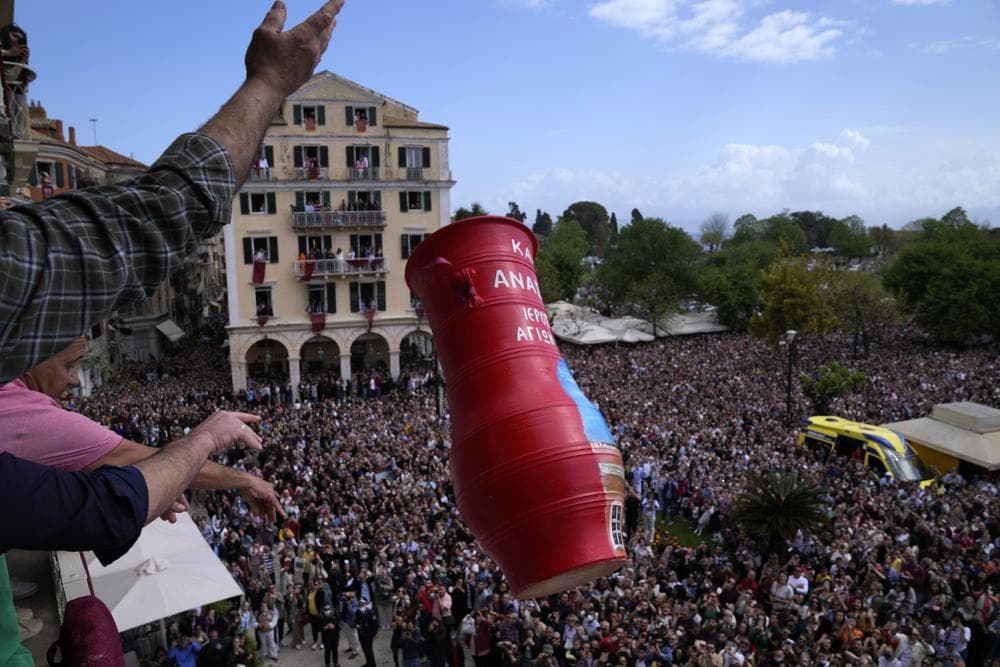ATHENS, Greece — For the first time in three years, Greeks were able to celebrate Orthodox Easter without the restrictions made necessary by the coronavirus pandemic.
Beyond the obvious religious messages, in Greece, Easter signifies a return to the countryside, often to people’s ancestral homes, and a mass exodus from big cities.
Police and port authorities say that this year’s exodus was significantly higher than that of pre-pandemic 2019.
In 2020, there was a total lockdown; in 2021, some dared leave the cities, often in violation of long-distance travel rules. Police had set up roadblocks on national roads to turn offenders around and impose fines.
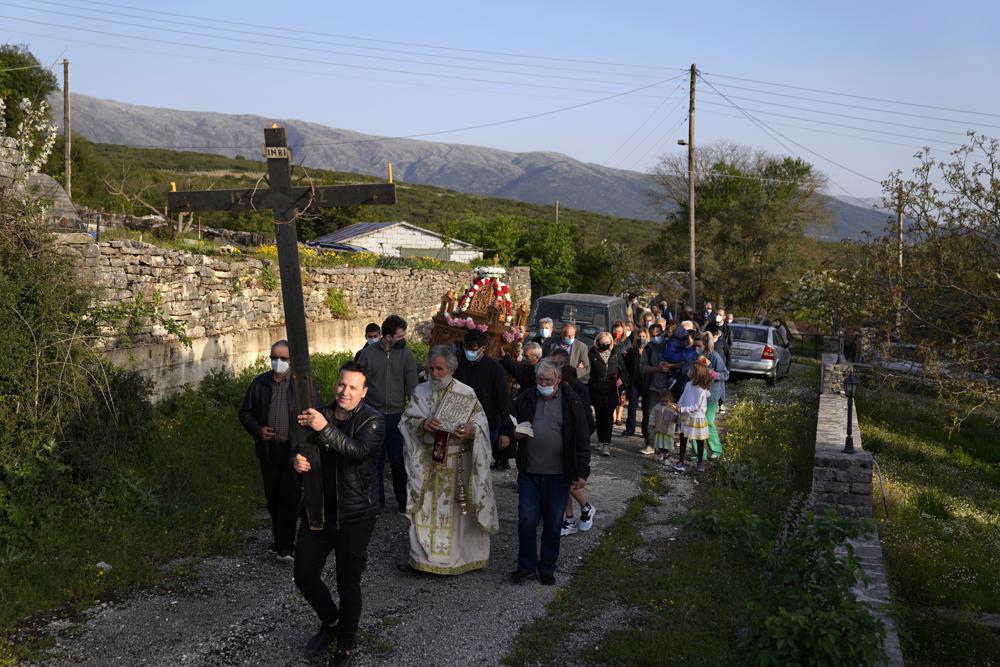
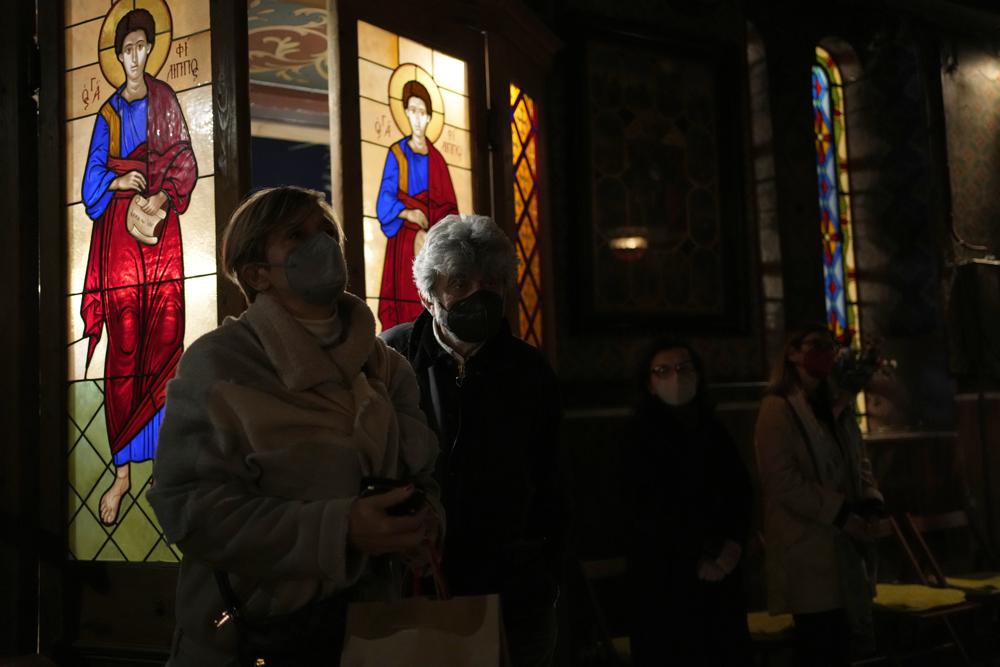
This year, churches were full and events fully attended, too. A variety of customs, some predating Christianity, were celebrated locally. Friday evening’s solemn procession of decorated funeral biers, or Epitaphs, once again was fully attended.
Crowds lined the old city of Corfu’s narrow streets Saturday morning for one of the most spectacular events, called ‘botides,’ that involves dropping clay jars full of water from balconies to crash with a loud bang on the streets below, spraying attendees with water. Locals consider it a miracle that there have been no serious injuries from flying clay shards. This ancient event’s original purpose was to ward off evil spirits.
This year, the Resurrection was celebrated once again at midnight Saturday after pandemic measures had brought it forward to 9 p.m. the previous year. By midnight, the ‘Holy Light’ — lit miraculously, the faithful believe, at Jerusalem’s Church of the Holy Sepulchre on Saturday — had reached almost all parishes across Greece, having arrived by plane in Athens and greeted with all the honors due a visiting head of state.
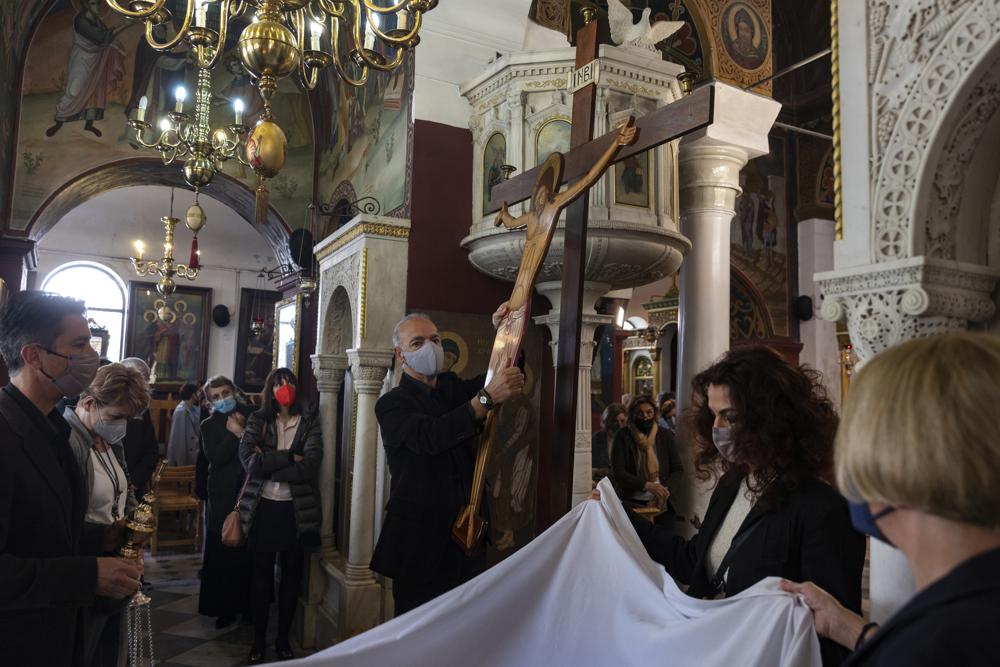
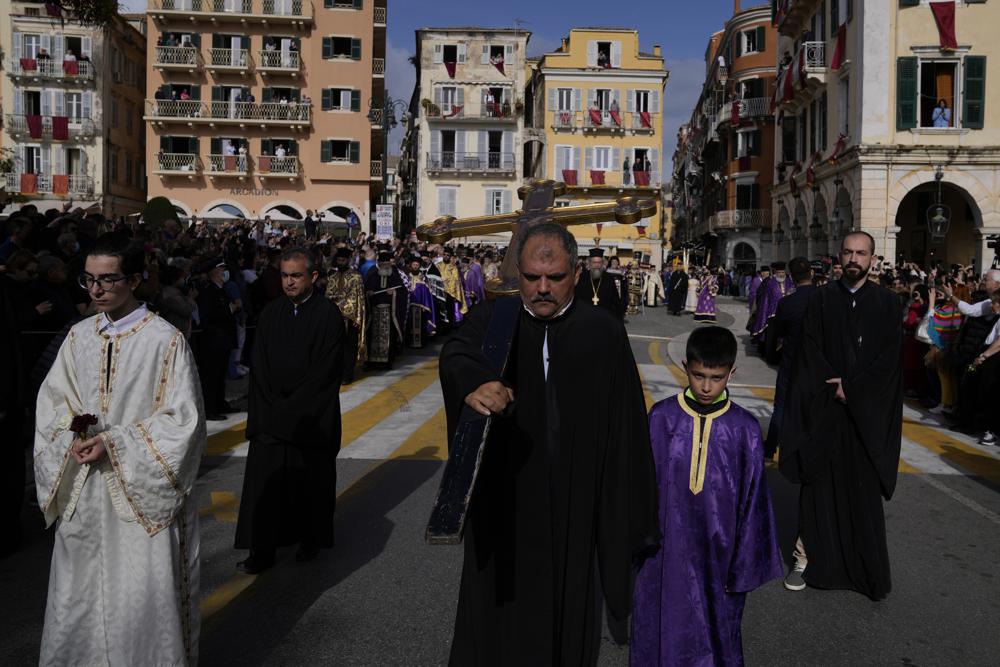
Celebratory fireworks, often to excess, have become associated with the celebration of Resurrection. And nowhere are they more excessive than on the island of Chios, in the village of Vrontado, where two parishes throw a barrage of fireworks at each other. Injuries have been far from rare in the past, but none was reported this year. Participants agreed to limit the fireworks to between 11 p.m. Saturday and 12:15 a.m. Sunday. Still, more than 10,000 fireworks were launched; both churches and many homes had been protectively covered in chicken wire.
Police announced Sunday that they had arrested 11 individuals in the capital, Athens, for trying to light up fireworks; a recent variant involves throwing firebombs, or Molotov cocktails. Police say they impounded 27 such bombs, along with several butane canisters and containers full of gasoline.
Sunday involves the usual slow roasting of a lamb, sometimes venison, on the spit and the cracking of Easter eggs, traditionally painted red.
Easter Monday is also a full holiday, with authorities hoping that people will have recovered enough from Sunday’s carousing to drive safely back home.
